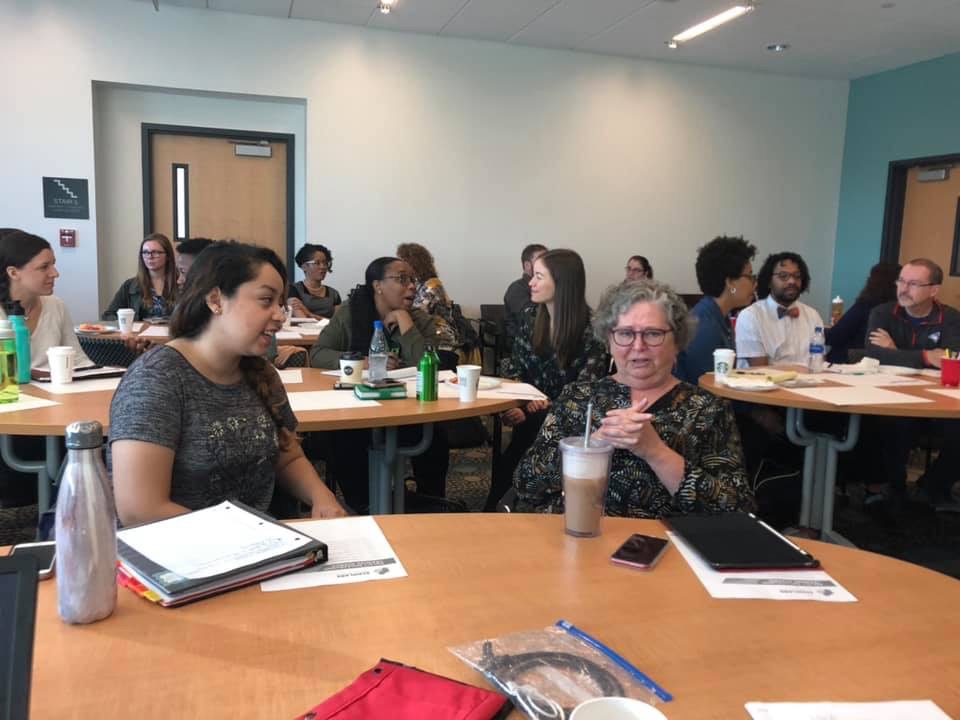by Daniel Delgado & Estenia Ortiz

Strong Coasts’ central research question asks what are the leverage points, or places in a system’s structure where a solution can be applied, (technological, regulatory, and organizational) with food-energy-water systems to improve sustainability of the overall system across different scales. On Friday 2/8/19 some of the cohort attended the Scholars Strategy Network (SSN) all-day workshop, “Training Researchers to Inform Policy,” to better understand policy, one of these leverage points.
While it is important to inform the public and have their support, building relationships with policy makers and organized interest groups is the key component in informing policy as a researcher. The training talked about how to choose the policy makers you align yourself with and how to best communicate with them. Showing up to events and actively engaging with key players will be more effective in having your work used than simply disseminating it in an unilateral manner. Another take home message from the workshop was the multiple uses for research evidence in policy. The four main categories in which research evidence is used by policymakers are 1) Instrumental, 2) Conceptual, 3) Imposed, and 4) Tactical.
Instrumental research informs policymakers with the potential outputs from the implementation of a certain policy. Conceptual research shapes the concepts policymakers are thinking about on a certain issue and may help them understand it better. Imposed means research evidence used by policymakers or practitioners may be needed by an external player for legal, regulatory, or funding requirements. Finally, tactical research is used to support an already existing policy.
The workshop was broken into several activities to align with the lecture. One of my favorites was drawing a web that was centered at a problem and that terminated at a position or person with whom we can communicate with directly to inform these policies. My second favorite was a roundtable discussion where we talked about our work with six other people, mostly from different disciplines, and advised each other on how to inform policy.
Daniel Delgado, NRT Strong Coasts Fellow, USF
The activities following this presentation were extremely beneficial as they made us reflect on our own research and where we think we fit on this spectrum. I left equipped with helpful tools to use in my research career and with a feeling of empowerment. Sharing our strengths and weaknesses in policy and public engagement was a memorable experience for me in which I not only found more room for growth, but also found a larger community of change makers.
Estenia Ortiz Carabantes, NRT Strong Coasts Fellow, USF
It seems frustrating to have a solution to one of the many problems in the world, but be unable to implement it because the policies are not there to support your work. It must be further frustrating to try to change these policies with no success. We went to the training to learn how to most efficiently contribute to sound environmental policies and left content.

Comments are closed.